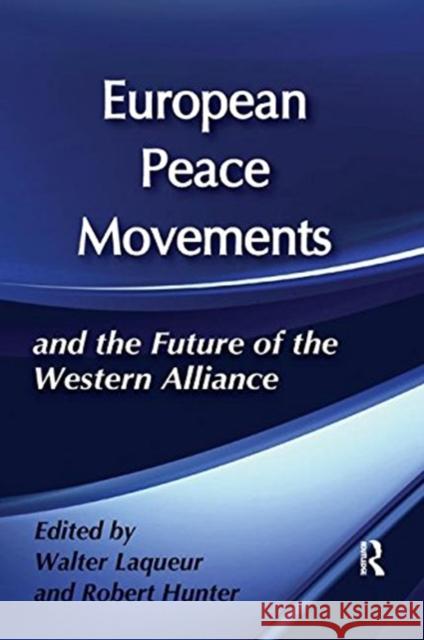European Peace Movements and the Future of the Western Alliance » książka
European Peace Movements and the Future of the Western Alliance
ISBN-13: 9781138509825 / Angielski / Miękka / 2017 / 450 str.
European Peace Movements and the Future of the Western Alliance
ISBN-13: 9781138509825 / Angielski / Miękka / 2017 / 450 str.
(netto: 106,14 VAT: 5%)
Najniższa cena z 30 dni: 95,66
ok. 22 dni roboczych
Dostawa w 2026 r.
Darmowa dostawa!
This extraordinary compendium concerns the future of the Western alliance and the development of the peace movements in Europe and in the United States. The peace movement is an old phenomenon given new life by NATO decisions concerning nuclear deployment in Europe and the Soviet responses along the same lines. After a long postwar marriage, Europeans and Americans alike are reexamining the premises of the Western alliance.The contributors provide a variety of scenarios, extending from the maintenance of the status quo to the complete dismantling of the Western alliance, or at least of its NATO component. In a context of rapid change and new challenges to the democratic bloc, the editors and authors argue for higher levels of economic integration and caution that competition might spill over into political collapse.The work deals with thorny security issues in a frank and policy-oriented way. While each contributor expresses a unique standpoint, a surprising consensus emerges: The need for democratic nations to move toward a higher policy ground in order to preserve the fundamental alliance that led to the postwar consensus to begin with. Some contributors feel this is still possible, others that the time has passed, and that national rather than regional interests will once more prevail.The work contains an extraordinary array of talent from both the American and European perspectives. Among the major contributors and their themes are Henry Kissinger on "A Plan to Reshape NATO"; William G. Hyland on "The European Peace Movement and NATO"; Irving Kristol on "What's Wrong with NATO?"; Theodore Draper on "The Western Misalliance"; Niels Haagerup on "The Nordic Peace Movements"; Martin Ceadel on "The British Nuclear Disarmers"; and Jeffrey Herf on "The SPD and the Peace Movement in West Germany." This is a well-integrated text, with no random essays.











